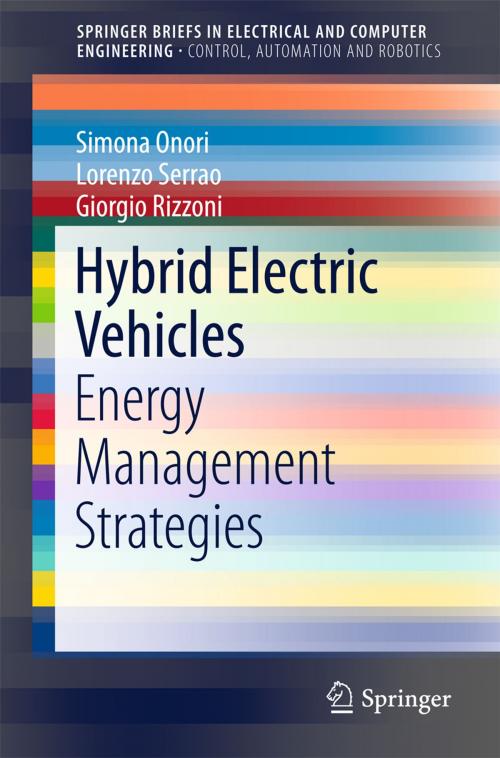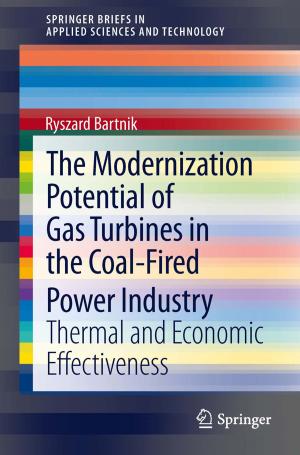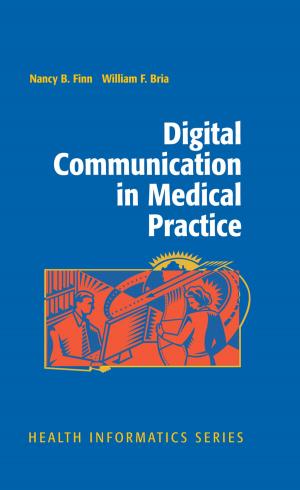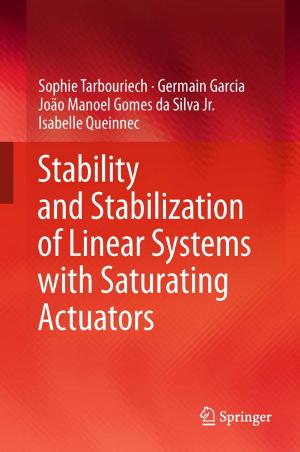Hybrid Electric Vehicles
Energy Management Strategies
Nonfiction, Science & Nature, Technology, Automation, Engineering, Automotive| Author: | Simona Onori, Lorenzo Serrao, Giorgio Rizzoni | ISBN: | 9781447167815 |
| Publisher: | Springer London | Publication: | December 16, 2015 |
| Imprint: | Springer | Language: | English |
| Author: | Simona Onori, Lorenzo Serrao, Giorgio Rizzoni |
| ISBN: | 9781447167815 |
| Publisher: | Springer London |
| Publication: | December 16, 2015 |
| Imprint: | Springer |
| Language: | English |
This SpringerBrief deals with the control and optimization problem in hybrid electric vehicles. Given that there are two (or more) energy sources (i.e., battery and fuel) in hybrid vehicles, it shows the reader how to implement an energy-management strategy that decides how much of the vehicle’s power is provided by each source instant by instant.
Hybrid Electric Vehicles:
•introduces methods for modeling energy flow in hybrid electric vehicles;
•presents a standard mathematical formulation of the optimal control problem;
•discusses different optimization and control strategies for energy management, integrating the most recent research results; and
•carries out an overall comparison of the different control strategies presented.
Chapter by chapter, a case study is thoroughly developed, providing illustrative numerical examples that show the basic principles applied to real-world situations. The brief is intended as a straightforward tool for learning quickly about state-of-the-art energy-management strategies. It is particularly well-suited to the needs of graduate students and engineers already familiar with the basics of hybrid vehicles but who wish to learn more about their control strategies.
This SpringerBrief deals with the control and optimization problem in hybrid electric vehicles. Given that there are two (or more) energy sources (i.e., battery and fuel) in hybrid vehicles, it shows the reader how to implement an energy-management strategy that decides how much of the vehicle’s power is provided by each source instant by instant.
Hybrid Electric Vehicles:
•introduces methods for modeling energy flow in hybrid electric vehicles;
•presents a standard mathematical formulation of the optimal control problem;
•discusses different optimization and control strategies for energy management, integrating the most recent research results; and
•carries out an overall comparison of the different control strategies presented.
Chapter by chapter, a case study is thoroughly developed, providing illustrative numerical examples that show the basic principles applied to real-world situations. The brief is intended as a straightforward tool for learning quickly about state-of-the-art energy-management strategies. It is particularly well-suited to the needs of graduate students and engineers already familiar with the basics of hybrid vehicles but who wish to learn more about their control strategies.















